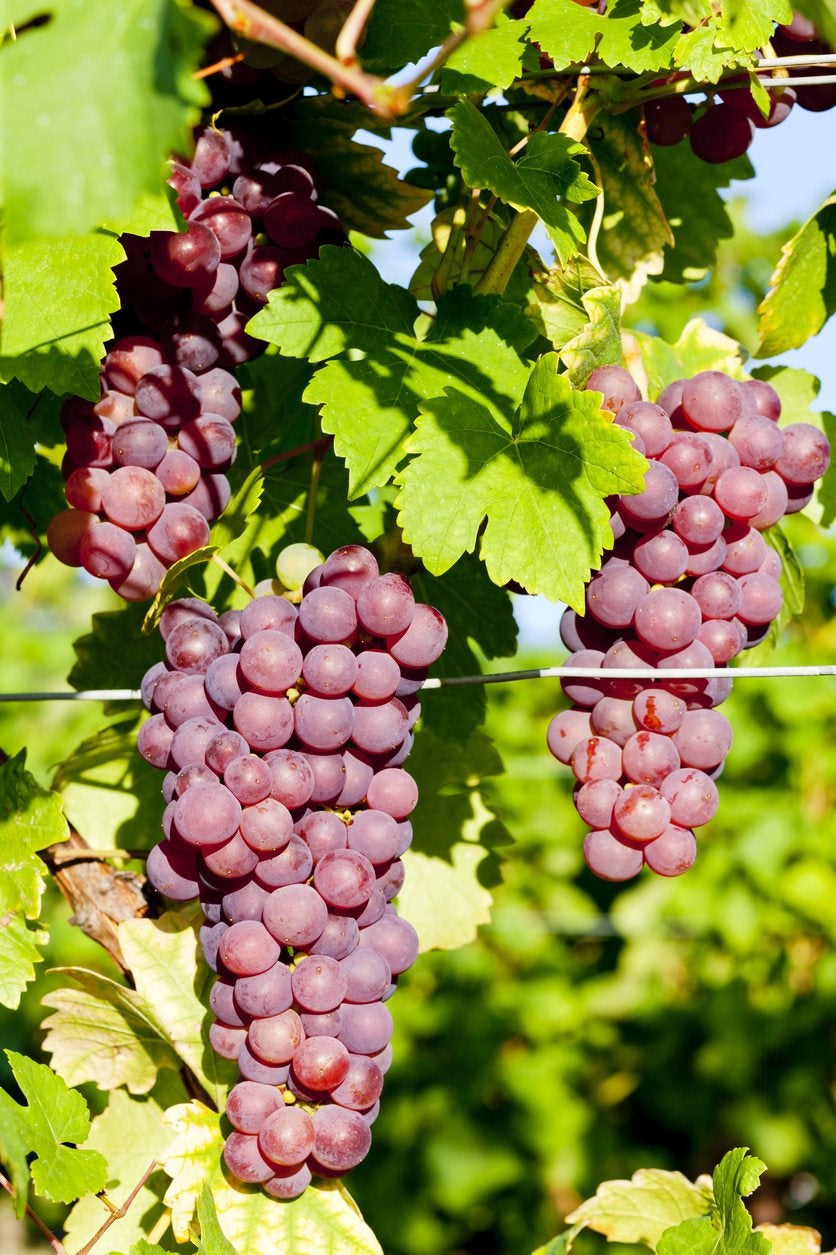
Grapes need lots of warm days to ripen and they only ripen on the vine. This used to make growing grapes in zone 5 or colder difficult, if not impossible, but newer varieties of cold hardy grapes make growing grapevines for zone 5 promising. Read on to find out about these cold hardy zone 5 grape varieties.
Growing Grapes in Zone 5
In cooler regions, choosing the correct varietal is crucial. They need to be able to mature before the first frost hits. Even with cold hardy grape varieties, the northern gardener will probably be leaving the grapes on the vine well into early fall, sometimes up to the first killing frost of the season. This puts the grower into a perilous area. The grapes won’t ripen off the vine, but a hard freeze will ruin them. An ongoing taste test is the only true way to see if the grapes are ready to harvest. The longer they are left on the wine, the sweeter and juicier they become. Hardy grape varieties are bred using indigenous grapes found throughout the eastern half of northern North America. Although the fruit of this regional grape is small and less than tasty, it is very cold hardy. So, breeders cross bred these grapes with other varieties of wine, table, and jelly grapes to create hybrid grapes that survive the cooler northern temperatures and shorter growing season.
Zone 5 Wine Grapes
There was a time when northern grape varieties lacked vineyard parentage, thus rendering them too acidic for winemaking. Today’s cold hardy grapes have been bred to be higher in sugars though, so zone 5 wine grapes are now available to northern growers. The list of these suitable wine grapes is now quite extensive. For assistance with choosing the best wine grapes for your area, contact your local County Extension Service. They can provide soil analysis, free and low-cost publications, as well as verbal knowledge regarding what wine grapes work best for your region.
Zone 5 Grape Varieties
There are also a large number of zone 5 grape varieties for other uses. There are even grape cultivars that grow well in zones 3 and 4, which would certainly be suited to growing in zone 5. Zone 3 grape varieties include Beta, Valiant, Morden, and Atcan.
- Beta is the original hardy grape with deep purple fruit that is ideal for jams, jellies, and juice as well as for eating out of hand.
- Valiant is even hardier that Beta with fruit that ripens earlier.
- Morden is a recent hybrid that is the hardiest green table grape available.
- Atcan is a new blush grape hybrid with small grapes that are good for white grape juice, eating out of hand, and with the potential for use in winemaking.
Grapes suited for growing in zone 4 include Minnesota 78, Frontenac, LaCrescent, Elelweiss.
- Minnesota 78 is a hybrid based on Beta but with much better flavor and less hardiness and is excellent for use in preserving and juicing.
- Frontenac is a prolific producer of heavy clusters of purple-blue fruit commonly used to make jelly and excellent red wine.
- LaCrescent is a golden white grape that was bred for winemaking but is, unfortunately, susceptible to several diseases.
- Elelweiss is one of the hardiest and most disease resistant of the green grapes and is delicious eaten fresh or used to make sweet white wine.
Zone 5 grape varieties include Concord, Fredonia, Gewurztraminer, Niagara, and Catawba. There are many other cultivars suited to zone 5, but these are some of the most popular.
- Concord grape is ubiquitous with grape jelly and juice and is also good eaten fresh.
- Fredonia is a hardier version of Concord and ripens earlier.
- Gewürztraminer makes lovely rich, full bodied wine and is one of the hardiest of the commercial white wine grapes.
- Niagara is a very popular cultivar noted for its delicious green table grapes.
- Catawba is a very sweet red grape that is used to make sweet or sparkling wines.
Sign up for the Gardening Know How newsletter today and receive a free copy of our e-book "How to Grow Delicious Tomatoes".

Amy Grant has been gardening for 30 years and writing for 15. A professional chef and caterer, Amy's area of expertise is culinary gardening.
